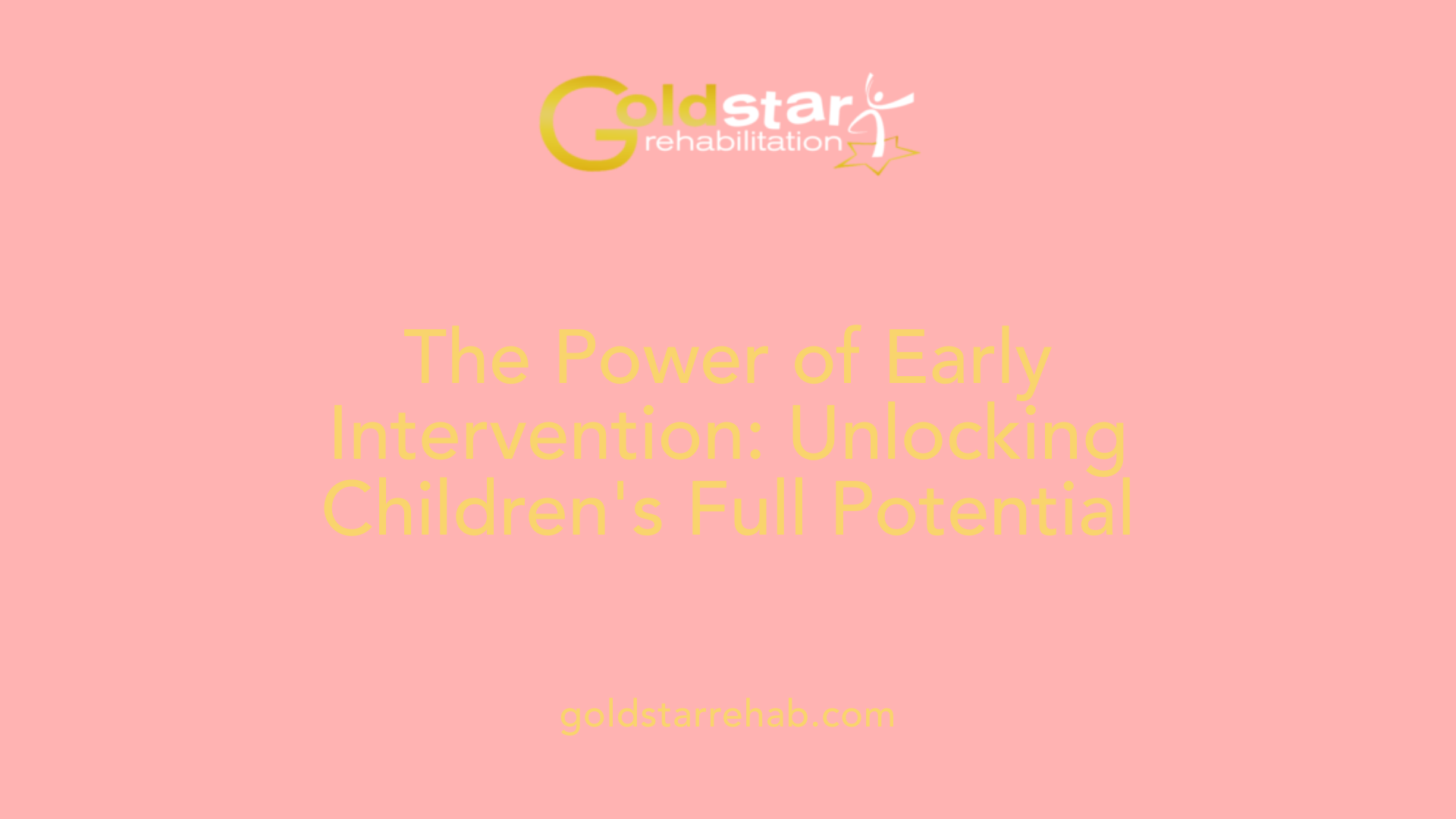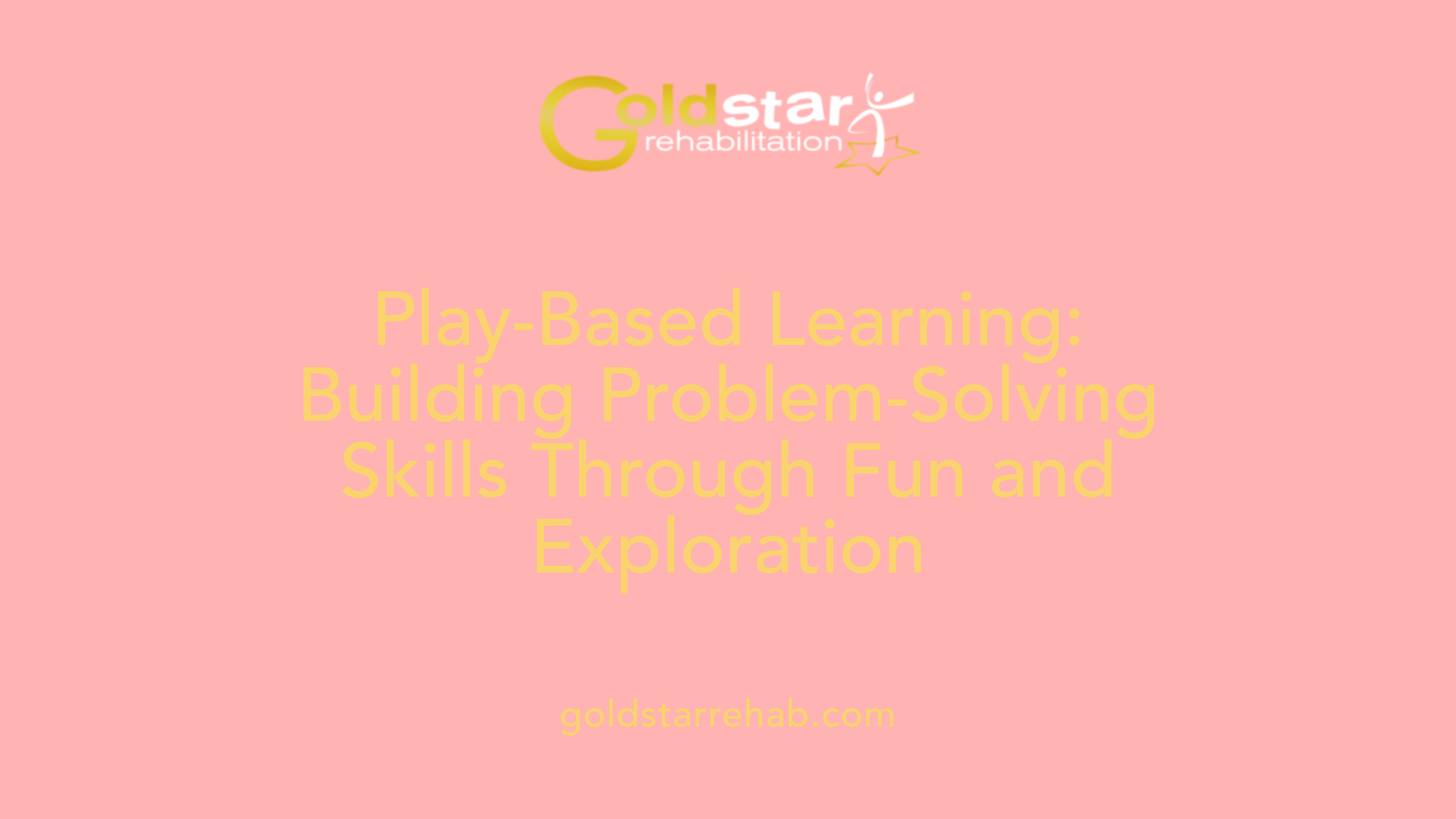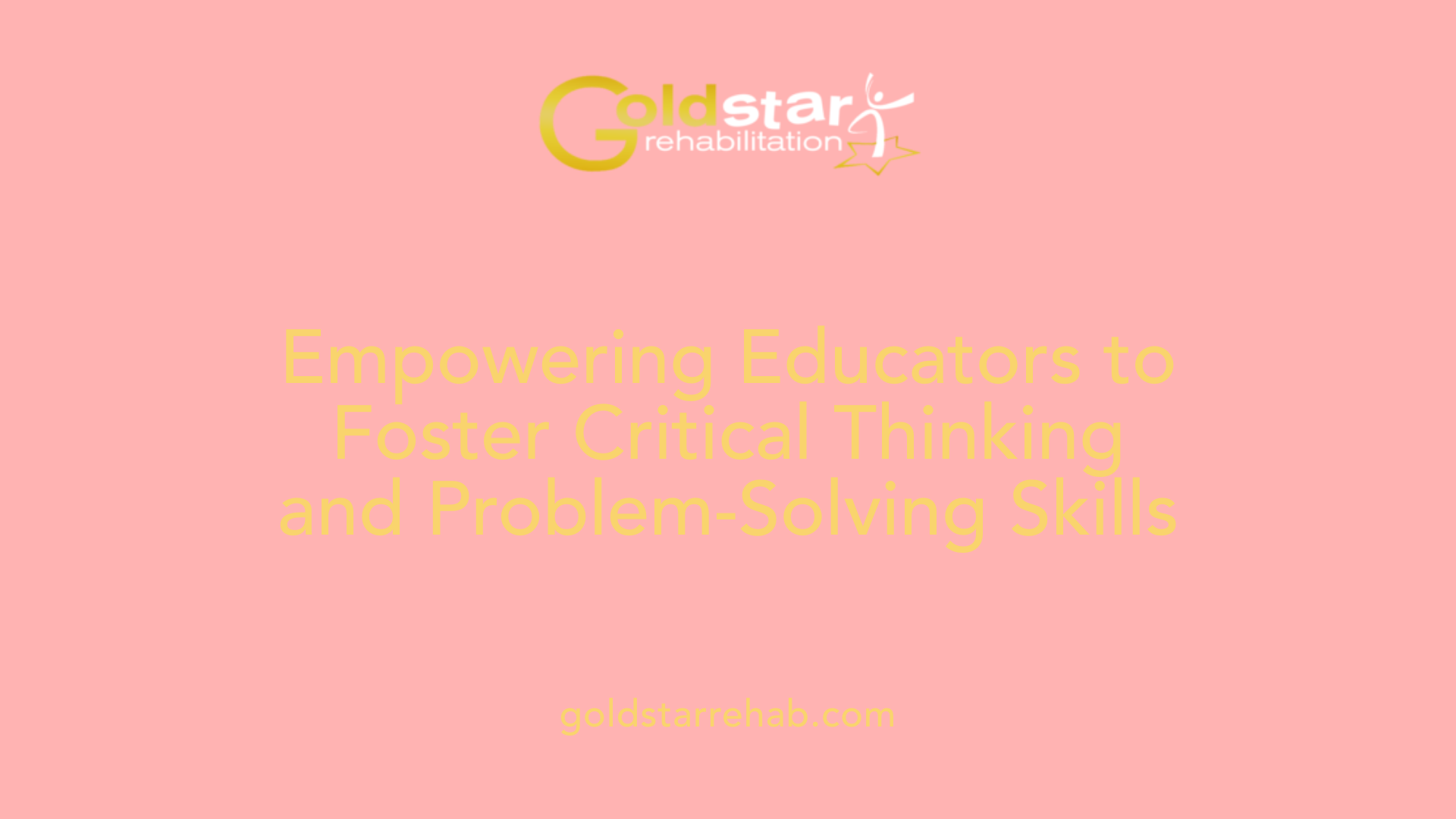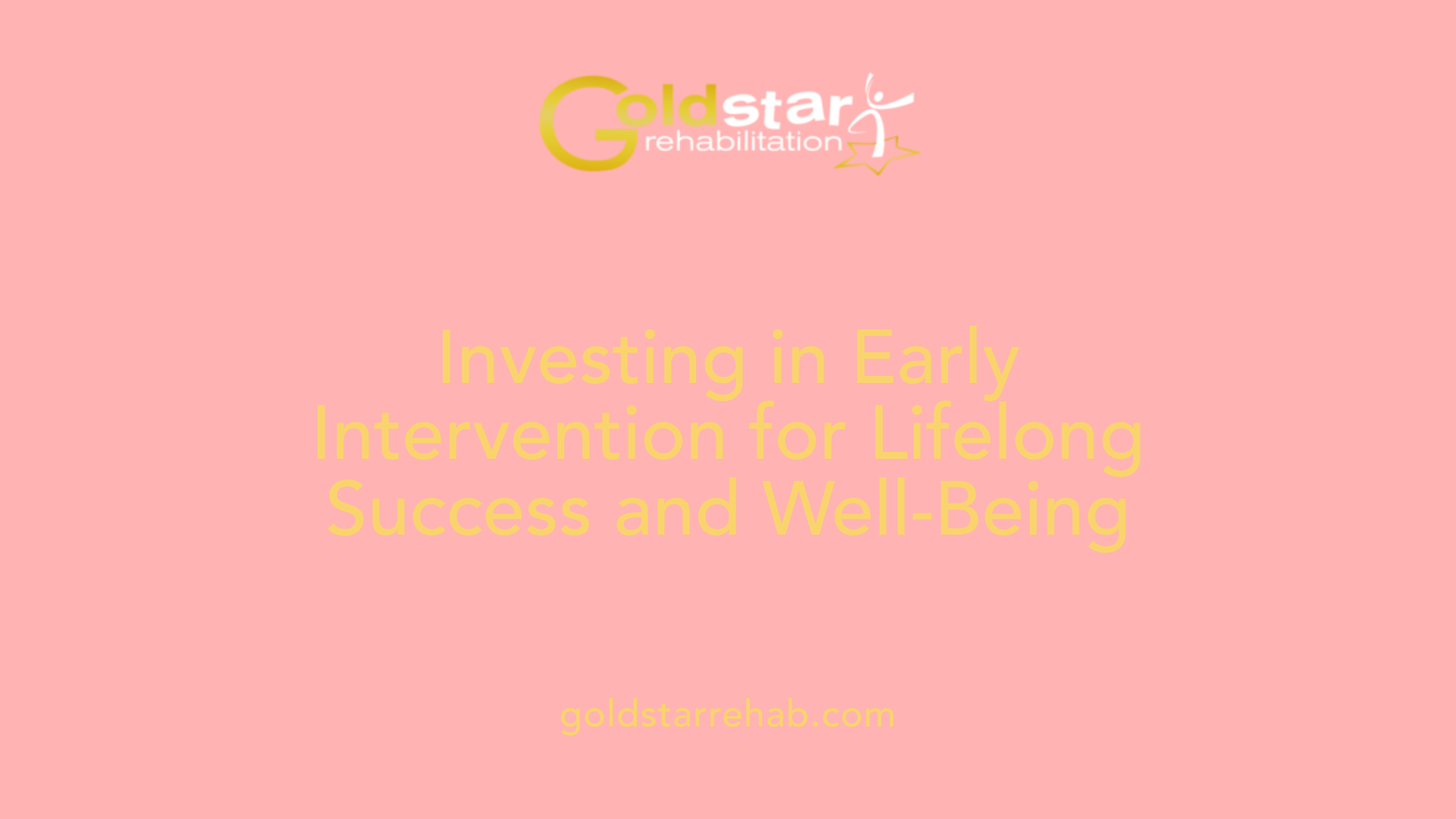The Role of Early Intervention in Building Problem-Solving Skills
Unlocking Potential: How Early Intervention Shapes Young Minds
Table of Contents
The Significance of Early Action in Child Development
Early intervention plays a crucial role in nurturing children's problem-solving skills, which are fundamental for their cognitive growth, emotional resilience, and social competence. During the first few years of life, children’s brains are highly plastic, making this period ideal for targeted support that can set the foundation for lifelong success. Implementing early strategies and programs designed to promote problem-solving not only addresses developmental delays but also enhances overall development, including social-emotional health and academic readiness.
Understanding the Critical Role of Early Intervention in Child Development

What is the importance of early intervention in child development?
Early intervention is crucial because the earliest years of life are when a child’s brain is developing at its fastest. During this period, rapid neural connections form, shaping cognitive, social-emotional, and physical skills. Providing targeted support early helps children overcome developmental delays, learn essential skills, and meet key milestones.
Timely intervention can prevent further complications, reducing the need for intensive services later. It also promotes stronger parent-child bonds, boosts parental confidence, and supports culturally responsive practices in natural settings. Ultimately, early intervention creates a strong foundation for lifelong learning, emotional health, and well-being, setting children on a path toward academic success and healthy social relationships.
How does early intervention support different areas of development?
Early intervention addresses multiple developmental domains, including cognitive skills, language, motor abilities, social-emotional competence, and behavioral regulation. For example, therapies like speech and occupational therapy help children improve communication and movement, while behavioral strategies foster emotional resilience.
Programs such as The Incredible Years focus on social-emotional growth and behavioral support, empowering children with adaptive skills. This holistic approach ensures children build the necessary foundation to participate actively in learning environments and social settings.
Long-term benefits of early intervention
Research shows early intervention leads to significant, long-lasting advantages. Children who receive early support tend to perform better academically, are more socially competent, and display greater emotional regulation. Early intervention also reduces the likelihood of grade retention, special education placement, and behavioral problems.
Moreover, investing in early services offers economic benefits, with studies indicating an $11 return for every dollar spent on social-emotional learning initiatives. These programs can reduce future costs related to healthcare, social services, and the criminal justice system.
By fostering early social, emotional, and cognitive skills, intervention not only helps children succeed in school but also promotes healthier, more resilient communities. Ultimately, early intervention is a vital investment in children’s present and future, ensuring they reach their full potential.
The Impact of Play and Activities on Problem-Solving Skills

Types of play that foster problem-solving
Play is a fundamental activity that supports cognitive development, especially problem-solving abilities, in young children. Different types of play offer unique opportunities for children to develop these skills. For instance, puzzle play helps children understand patterns and sequence, encouraging logical reasoning. Building blocks and construction toys promote spatial awareness and planning, while role-playing and pretend scenarios foster creativity and empathy. Sensory play and group projects also support cooperative problem-solving, helping children navigate social interactions and resolve conflicts. Incorporating a variety of play types ensures children can develop versatile problem-solving skills adaptable to real-life situations.
The role of imaginative and structured play
Imaginative play, such as role-playing and storytelling, allows children to explore scenarios, practice empathy, and think creatively. During these activities, children often encounter problems that they need to resolve through negotiation, decision-making, and flexible thinking. This type of play nurtures cognitive agility and emotional regulation, which are essential for effective problem-solving.
Structured play, including puzzles, board games, and building activities, provides guided challenges that promote reasoning and strategic thinking. These activities help children learn how to analyze problems, develop hypotheses, and test solutions. The combination of free-form imaginative play and goal-oriented structured play offers a balanced approach to building foundational problem-solving skills.
Activities that promote critical thinking and reasoning
Activities such as puzzle-solving, building with blocks, and strategy games are highly effective in encouraging children to apply logical thinking. Asking open-ended questions during play—like, "What do you think will happen if..." or "How can you solve this problem?"—stimulates reflection and reasoning.
Caregivers can incorporate real-life situations like shopping or household chores into play, prompting children to think critically about everyday challenges. Using props and storytelling during playtime further enriches these experiences, making learning engaging and meaningful.
Research evidence supports these methods, indicating that such activities strengthen neural connections related to problem-solving and contribute to long-term academic and social success. By intentionally embedding these activities into children's routines, parents and educators help lay a solid foundation for their future learning, resilience, and independence.
Strategies for Parents and Caregivers in Promoting Problem-Solving
What strategies can parents and caregivers use to nurture problem-solving skills through early intervention?
Parents and caregivers play a vital role in developing children's problem-solving abilities from an early age. One effective approach is modeling problem-solving techniques by demonstrating their own thought processes aloud. When adults verbalize how they approach a challenge, children learn valuable strategies and see problem-solving as a positive activity.
Engaging children with real-life challenges in daily routines is another powerful method. Activities like solving puzzles, building with blocks, or participating in collaborative decision-making foster curiosity and resilience. These experiences teach children that challenges can be overcome through effort and creative thinking.
Using educational resources and play-based activities further supports development. Toys, games, and programs such as PBS Kids or Sesame Workshop are rich sources of engaging content designed to enhance critical thinking. These resources often include problem-solving tasks that are appropriate for young children and promote active participation.
Caregivers can also teach children explicit problem-solving steps—such as identifying the problem, brainstorming solutions, testing options, and reflecting on outcomes. Revisiting past challenges and learning from unsuccessful attempts encourages persistence and resilience.
Encouraging creativity through open-ended questions stimulates higher-order thinking. Asking questions like “What could we do next?” or “How might we solve this?” invites children to explore multiple solutions.
Praising effort and perseverance rather than just success helps cultivate a growth mindset. Recognizing progress motivates children to continue developing their skills.
In summary, nurturing problem-solving skills involves modeling effective strategies, creating meaningful challenges, utilizing educational and play resources, and fostering an environment where children feel safe to experiment, make mistakes, and learn from them. These practices support long-term cognitive growth and build a foundation for academic and social success.
The Role of Educators in Developing Child Problem-Solving Abilities

What is the role of early educators in supporting children's problem-solving development?
Early educators are instrumental in nurturing problem-solving skills during early childhood. By creating environments that are safe, engaging, and rich in stimulation, they set the stage for children to explore, experiment, and learn.
A fundamental part of their role involves facilitating play-based learning. Activities such as puzzles, building blocks, and role-playing games provide hands-on opportunities for children to develop reasoning, flexibility, and decision-making skills. Engaging children in these activities encourages curiosity and enhances their ability to approach problems from different perspectives.
Modeling social-emotional skills like patience, empathy, and resilience is also vital. Educators demonstrate how to handle challenges calmly and supportively, which children often imitate, fostering their emotional intelligence.
Further, teachers ask open-ended questions that challenge children to think deeply and reflect on their solutions, fostering critical thinking. They support independence by scaffolding tasks and encouraging perseverance, helping children understand that problem-solving is a process that involves trying, learning from mistakes, and trying again.
Through continuous responsive interactions and a diverse array of activities, early educators build a strong foundation for children’s lifelong problem-solving capabilities, emotional resilience, and social competence. Their role is transformational in equipping children with the skills necessary for academic success and healthy social relationships.
Creating stimulating environments
Providing varied and engaging resources, such as colorful puzzles, interactive storybooks, and creative play props, stimulates children’s natural curiosity. High-quality early childhood settings incorporate sensory activities, multicultural materials, and spaces that children can freely explore, fostering independent problem-solving.
Facilitating play-based learning
Play is the natural language of children. Teachers facilitate activities that promote exploration, experimentation, and collaboration. During play, children learn to negotiate, strategize, and think critically—essential skills for lifelong problem-solving.
Modeling social-emotional skills
Educators demonstrate patience, empathy, and emotional regulation through their interactions. By doing so, they teach children how to manage emotions, develop empathy, and establish positive social relationships—all integral to collaborative problem-solving.
Resources and Strategies
Various resources, such as those offered by organizations like NAEYC or Sesame Workshop, provide strategies for educators to effectively promote problem-solving skills. Incorporating stories, questions, and provocations designed to challenge children enhances their critical thinking and adaptability.
ApproachExample ActivitiesImpactStimulating EnvironmentsSensory bins, multicultural materialsSparks curiosity, independencePlay-based FacilitationBuilding, role-play, puzzlesDevelops reasoning, flexibilityModeling SkillsDemonstrating patience, reflecting emotionsEnhances social-emotional intelligence
Evidence-Based Programs Supporting Young Children's Problem-Solving Skills

Several programs have demonstrated success in fostering problem-solving abilities in early childhood, with a focus on social-emotional development and cognitive growth. Among them, The Incredible Years and Vroom stand out as leading initiatives.
The Incredible Years programs are comprehensive, evidence-based interventions that involve parents, teachers, and children. They aim to strengthen social, emotional, and behavioral skills, emphasizing the development of problem-solving capabilities. These programs incorporate interactive activities, parent training, and classroom strategies designed to promote emotional regulation, social competence, and early cognitive skills essential for problem-solving.
Vroom, another prominent initiative, leverages daily moments and routines to encourage parents and caregivers to support cognitive development through simple, engaging activities. Its focus on using everyday interactions to stimulate critical thinking and reasoning makes it an accessible and effective approach.
Research consistently highlights positive outcomes from these programs. Studies show that children participating in The Incredible Years exhibit improved social interactions, reduced behavioral problems, and higher levels of emotional regulation. These skills directly contribute to better problem-solving abilities and academic readiness.
Program components typically include targeted activities such as role-playing, storytelling, and open-ended questioning. These strategies encourage children to think independently, explore solutions, and build resilience.
Overall, early intervention programs like The Incredible Years and Vroom offer scientifically supported methods to bolster problem-solving skills during crucial developmental stages. By fostering emotional and cognitive competencies in nurturing environments, these programs lay a strong foundation for lifelong learning and success.
Supporting Long-Term Success and Well-Being Through Early Intervention

What are the benefits of early intervention for children with developmental delays?
Early intervention is instrumental in helping children with developmental delays improve their overall growth and future success. Providing support during the first three years of life, a critical window for brain development, allows these children to develop foundational skills more effectively. This early support typically includes therapies such as speech-language, occupational, and physical therapy, which target developmental areas like communication, motor skills, and social interaction.
Children who receive timely intervention tend to reach important milestones sooner, such as walking or speaking, which can positively influence their academic and social trajectories. Early intervention also fosters emotional regulation and resilience by teaching children how to manage their feelings and stress effectively. Additionally, it reduces the likelihood of more serious challenges later, such as the need for special education placements or behavioral issues.
Support for families is another critical benefit. Early intervention programs often include resources, education, and guidance for parents, which can lessen stress and improve family dynamics. This comprehensive approach not only enhances individual outcomes for children but also contributes to societal benefits. Research shows that early intervention yields a high return on investment, with estimates suggesting an $11 benefit for every dollar spent. Overall, the early identification and targeted support enable children to reach their full potential, fostering lifelong skills and better mental health.
Early Education's Role in Developing Problem-Solving and Future Success
Why is early education critical for developing problem-solving abilities?
Early education plays a pivotal role in cultivating problem-solving skills that are essential for children’s overall cognitive, social, and emotional development. During the early years, a child's brain is highly adaptable—an optimal period for forming neural connections that serve as the foundation for lifelong learning.
In early childhood classrooms, children are introduced to engaging activities like puzzles, building blocks, and role-playing games. These experiences not only foster curiosity but also improve reasoning, flexibility, and perseverance. Teachers and parents guide children through problem-solving processes, encouraging exploration and independent thinking.
Supportive environments and deliberate interactions are vital. When caregivers ask open-ended questions and model thoughtful approaches to problems, children learn to analyze situations, consider multiple solutions, and develop resilience in the face of challenges. Imaginative play further enhances problem-solving by allowing children to experiment with different roles and scenarios, promoting empathy and creative thinking.
Research underscores that acquiring these skills early boosts confidence and decision-making prowess. Children who develop strong problem-solving abilities are better equipped to handle academic tasks, social interactions, and everyday challenges.
In summary, early education provides a rich context for nurturing essential problem-solving and critical thinking skills. It lays a robust groundwork for children to thrive academically and socially, preparing them for lifelong success.
Fostering Lifelong Problem-Solving Skills Through Early Support
Investing in early intervention and high-quality early childhood education is a strategic approach to nurture problem-solving, emotional resilience, and social skills. These early efforts create a ripple effect, leading to better academic achievement and social-emotional well-being throughout life. Long-term studies consistently demonstrate that children who benefit from early targeted support are more likely to succeed academically, develop into emotionally competent adults, and contribute positively to society. Strengthening parent and educator engagement, adopting evidence-based programs like The Incredible Years, and emphasizing play and interactive learning are vital components of this approach. Ultimately, supporting children in their early years equips them with the skills needed to navigate future challenges, unlocking their full potential for lifelong success.
.png)








%20(1).jpg)




.jpg)





.jpg)

.jpg)











